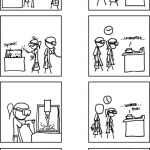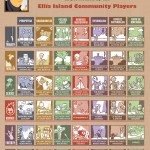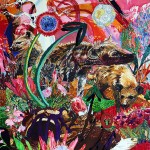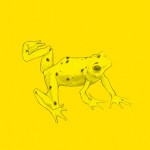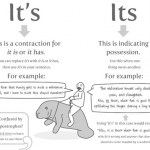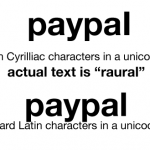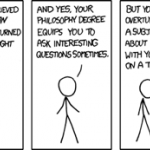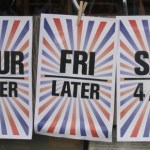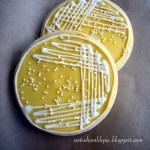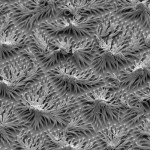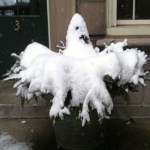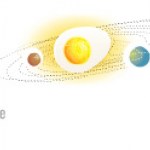blogosphere
What can scientists do about Hollywood's ongoing inability to depict science in a realistic manner, as depicted by xkcd? If you're interested in this question (or still angry that Scully was somehow able to complete a Southern blot on trace alien DNA over her lunch hour), you may be interested in tomorrow's Armed with Science guests: blogger Jen Ouellette, who's heading up NAS' Science and Entertainment Exchange, and the executive producer of SyFy's EUREKA.
Jennifer Ouellette, director of the National Academy of Sciences' Science and Entertainment Exchange, and Jamie Paglia, co-creator and…
Attention all art/science web-collaborative types! Dave Ng has just formally announced the Phylomon Project. Here's the hook: a paper published in 2000 determined that an 8 year old could identify and characterize 120 different Pokemon characters, but when it comes to animals in their own backyard, kids have no clue.
There's nothing wrong with kids having rich fantasy worlds - far from it. But why not give them the chance to discover that real biology is also incredibly cool - not to mention complex, beautiful, and for many kids, right outside their back door? Maybe I'm showing my age, but…
Via somebody awesome. You can get a print of it at dresden codak.
BioE readers: if you have a minute, take this quick five-question survey to let me know your thoughts on blog comments. Thanks!
The survey is now closed. Thanks!
A Cruel and Beautiful Far Away Place
Christopher Reiger
Vision Quest, "A Group Show of Neo-Shamanic Art," is opening at the Observatory in NYC this Saturday, January 16, at 7pm:
While the role of the shaman has traditionally been fulfilled by experienced elders in indigenous groups spanning culture and time, VISION QUEST posits that our artists fit the bill as well. Today, with more of us living in an urban jungle rather than a real one, it has become all the more important to figure out ways to internalize the lessons of nature: its growth, its brilliant bloom, its death. And in an age of…
Chad Orzel, of Uncertain Principles, has a nice article today in Inside Higher Ed about the value of science blogging, both in his own career and in the scientific process in general. This is a view that I of course agree with and think is important, and Chad brings a unique perspective on the issue.
Go check out his article, but here's a taste:
As essential as this [communication] step is, it is in many ways the weakest link in the scientific process today. While there are more scientific papers published today than ever before, a combination of technical sophistication and scientific…
The Endangered Species Print Project has a clever approach to conservation: a series of limited-edition prints depicting endangered species, with the number of prints correlating with the number of individuals left in the wild. For this sunlight-saturated Panamanian Golden Frog by Jenny Kendler, that's a wild population/print run of only 100. All the proceeds from print sales go to Project Golden Frog. (For other species, proceeds go to a conservation group helping that particular species).
Artists Jenny Kendler and Molly Schafer created the project, and maintain a detailed blog on…
I like this little article by Sean Carroll for Edge:
I wanted to write that the Internet keeps people honest. The image of thousands of readers bursting into laughter gave me pause.
So let me put it this way: the Internet helps enable honesty. Many of us basically want to be honest, but we're fighting all sorts of other impulses -- the desire to appear clever or knowledgeable, to support a point we're trying to make, to feel the satisfaction of a rant well-ranted. In everyday conversation, when we know something specific about the expertise and inclinations of our audience, these impulses may…
Ten Words You Need to Stop Misspelling (detail)
view the whole thing at The Oatmeal - it's great.
While blogging late at night, I've sometimes wondered whether an extensive study of blog comments would yield a set of emergent categories, which could then be organized into a sort of phylogeny representing different species of blog commenter. I'm not referring to politics, academic discipline, or favorite ideological hobby horses: I'm talking about comment writing style and what you can infer from it, independent of a comment's content. For example, you have no doubt encountered Grammar Nazis…
It wasn't exactly a New Year's resolution, but Scibling Abel Pharmboy announced a new mission for Terra Sigillata this year:
Terra Sigillata will broaden its focus area to become an open platform for scientific and career development issues specific to underrepresented or underserved minority groups as described in the US by the National Institutes of Health: African Americans, Hispanic Americans, Native Americans/Alaska Natives who maintain tribal affiliation or community attachment, Hawaiian Natives and natives of the U.S. Pacific Islands, persons with disabilities, and underserved groups…
I encourage everyone to read this thoughtful post by Janet, and contribute your thoughts.
Often, questions about online civility are dismissed with the comment "get a thicker skin" - as if it simply doesn't matter whether people address each other with respect online. I think it does matter. In the offline world, the "us/them" mentality fosters prejudice and misunderstanding - just turn on FoxNews. If that mentality also dominates the online world, turning it into a bunch of bickering echo chambers, we lose one of our best opportunities for constructive dialogue with people of other…
Oh noes! Chris Mooney just used the phrase "scientific consensus on global warming" in a WaPo article on Climategate:
While the controversy has receded, it may have done lasting damage to science's reputation: Last month, a Washington Post-ABC News poll found that 40 percent of Americans distrust what scientists say about the environment, a considerable increase from April 2007. Meanwhile, public belief in the science of global warming is in decline.
The central lesson of Climategate is not that climate science is corrupt. The leaked e-mails do nothing to disprove the scientific consensus on…
According to Christina Warren at mashable.com, the switch to allowing non-Latin alphabet characters in web domains could give scammers a brand new toolkit. That's because browsers can't render many non-Latin characters, and the approximations may be doppelgangers for trusted sites. Alternatively, an address in an alphabet like Cyrillic, which shares certain letterforms with the Latin alphabet, can appear indistinguishable from pre-existing Latin-alphabet addresses:
Uh-oh.
It's only fair that users of different alphabets get to register their own addresses, but clearly there needs to be some…
I went to see Randall Munroe, creator of xkcd, a few weeks ago at MIT. Unfortunately the line to get him to sign books was about fifty frenzied geeks long, so I didn't stay for that. But I did enjoy his dialogue with the audience, which mainly consisted of answering questions ranging from obsessive fanboy minutia (why is xkcd published on Monday, Wednesday and Friday?) to vast and metaphysical (what is the true difference between geeks, nerds and dorks?) The latter question led to Munroe doodling and tinkering with a ridiculously convoluted Venn diagram, the details of which I can't remember…
Happy New Year!
It's been a great two years (almost) here at Scienceblogs. But since most readers don't comment, I don't really know who many of you are. Who are you, where are you, what do you do, and what plans/hopes do you have for the upcoming year?
If you've ever worked in a bio lab, you know what I mean: these look too real!
Yes, I know Pharyngula and BoingBoing already got to them early this month, while I was in the middle of finals, but I just had to blog them anyway. They're too bioE. Besides, you can use them as a New Year's diet aid.
"It is the largest thing we have ever built," says Whitesides, "and we have assembled it from transistors--the smallest things we know how to make. It is a chrysalis we are forming around the planet...a table where we sit to gossip, a suq where we buy and sell; a shadowy corner for planning mischief; a library holding the entire world's information; a friend, a game, a matchmaker, a psychiatrist, an erotic dream, a babysitter, a teacher, a spy....The best and worst and most ordinary of us reflected--and perhaps distorted--in a silvery fog of bits."
--George Whitesides describing the Internet…
There are two contradictory headlines today on Google News, both regarding someone I couldn't care less about. However, they nicely illustrate one of my key concerns about the internet: the pervasive illusion that the "wisdom of crowds" is in fact wisdom, or in fact fact.
Both stories involve the heinous Jon Gosselin, who as far as I'm concerned is a waste of attention. You may have heard that the former reality TV star had his apartment trashed over the holidays, and that no one knows who's responsible. But if one turns to Google News, one can see that People Magazine appears to have an…
The recent blizzard turned our decorative holiday planter into a suspiciously Cthulhulian holiday effigy. A cephaloconiferopod? A gymnosquid? An everoctogreen? I have no idea what to call it, but it obviously says "Merry Christmas, BioE readers!"
NPR now has its own science-meets-culture blog, 13.7:
13.7: Cosmos And Culture is written by five prominent scientists or science journalists with different fields and focuses. The five will write, as individuals and sometimes collectively, on the places where science and culture intersect, on all levels. The blog will at sometimes be provocative, controversial, amusing, idealistic, academic, insightful - but always thoughtful. The contributors to this blog stand by the conviction that scientists must engage in the public debate of what science can and cannot do.
All well and good, but I was…
